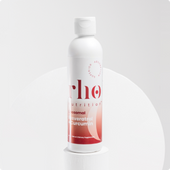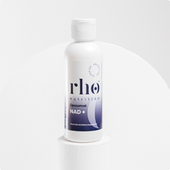The 3 Hallmarks of Cellular Aging and How to Combat Them
Aging is a natural part of life, but it can also come with many challenges. From wrinkles and gray hair to chronic health conditions, aging can affect us in many different ways. However, recent research has suggested that aging may be more than just a natural process, but rather a treatable condition. Dr. David Sinclair, a professor of genetics at Harvard Medical School, has stated that he believes aging is a disease that is treatable within our lifetimes. In this blog post, we will explore the 3 hallmarks of cellular aging and how to combat them.
- Oxidative Stress
Oxidative stress occurs when there is an imbalance between free radicals and antioxidants in the body. Free radicals are highly reactive molecules that can damage cells and accelerate aging, while antioxidants help neutralize these free radicals and protect against damage. As we age, our bodies become less efficient at producing antioxidants, leaving us more vulnerable to oxidative stress.
To combat oxidative stress, it is important to consume a diet rich in antioxidants. Foods such as berries, leafy greens, nuts, and seeds are good sources of antioxidants. Additionally, regular exercise has been shown to increase the body's natural antioxidant defenses. This is because exercise increases the production of endogenous antioxidants, which are produced by the body.
- Mitochondrial Dysfunction
Mitochondria are organelles that generate energy for the cell through a process called cellular respiration. As we age, mitochondrial function can decline, leading to decreased energy production and increased production of damaging free radicals. Mitochondrial dysfunction can also lead to the development of age-related diseases, such as Parkinson's disease, Alzheimer's disease, and cardiovascular disease.
To combat mitochondrial dysfunction, it is important to maintain a healthy lifestyle with regular exercise, a balanced diet, and adequate sleep. Exercise has been shown to improve mitochondrial function, as well as increase the production of new mitochondria. Additionally, supplements such as Coenzyme Q10 (CoQ10) and Nicotinamide Riboside (NR) have been shown to support mitochondrial function.
- Cellular Senescence
Senescent cells are cells that have stopped dividing and entered a state of "senescence." While senescence is a natural process that helps prevent the growth of damaged cells, an accumulation of senescent cells over time can lead to chronic inflammation, tissue damage, and an increased risk of age-related diseases.
To combat cellular senescence, it is important to maintain a healthy lifestyle with regular exercise, a balanced diet, and adequate sleep. Additionally, research suggests that certain supplements may help reduce the accumulation of senescent cells in the body. For example, glutathione, curcumin, and resveratrol have all been shown to have anti-senescence effects.
In conclusion, the 3 hallmarks of cellular aging - oxidative stress, mitochondrial dysfunction, and cellular senescence - can have a significant impact on our health as we age. However, by adopting a healthy lifestyle and incorporating supplements that support cellular health, we may be able to combat these hallmarks of aging and improve our overall health and longevity. As Dr. David Sinclair suggests, aging may be treatable within our lifetimes, and this could fundamentally change our understanding of human health.













Leave a comment